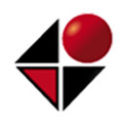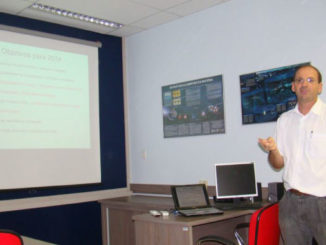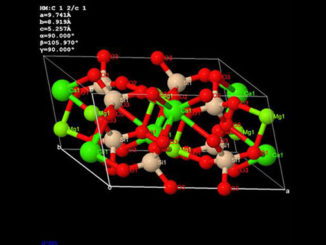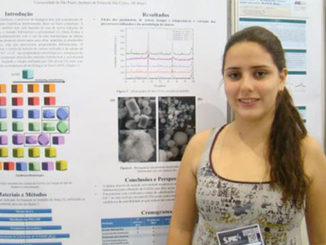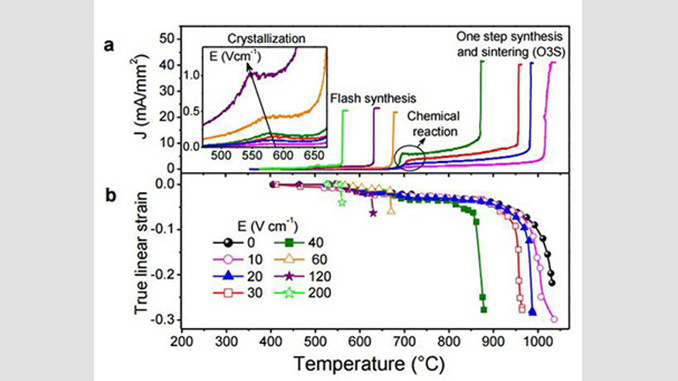
FAST ONE-STEP SYNTHESIS AND SINTERING OF MATERIALS PROMOTED BY ELECTRIC FIELDS
Functional dielectric materials have a wide range of applications in electro-electronic devices such as capacitors, oxygen sensors and varistors, frequently in the form of ceramics. Processing of these materials traditionally involves several steps including calcination at a relatively low temperature for synthesis, followed by milling, cold-pressing and then sintering at a high temperature for densification. We show that this processing protocol can be merged into a one-step experiment by the application of electric fields. This is illustrated with experiments carried out on perovskite-structured CaCu3Ti4O12 (CCTO). The starting point was a chemically-prepared amorphous CCTO precursor powder, which is shown, on heating, to experience crystallization and synthesis of the end phase, plus densification depending on field adjustment. The processing times and temperatures are considerably reduced, enabling production of dense ceramics with microstructures showing grains noticeably finer than in conventional approach. This entire scenario, implying low-cost materials processing, demonstrates that enhanced synthesis and sintering rates apply under field input. In addition, we also demonstrate that using fields is a cost-effective way to detect the temperatures at which crystallization and/or chemical reactions occur during processing.
Seminarista: Lílian Menezes de Jesus
Data e horário: Dia 28/04/2016, quinta feira, das 10 h às 11 h
Local: Sala 14, Prédio Administrativo do IFSC (embaixo do anfiteatro Prof. Sérgio Mascarenhas)
Para saber mais sobre esta pesquisa e o prêmio conquistado, acesse: Trabalho de pesquisadora do CCMC sobre flash sintering conquista prêmio no exterior

